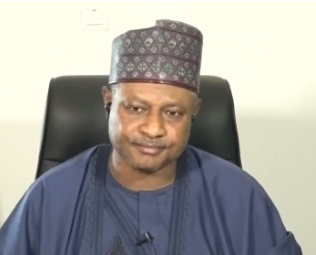Kaduna State Governor, Uba Sani, on Friday, announced that the out-of-school population in his state has decreased by 300,000 since April 2024.
Governor Sani disclosed this to State House Correspondents after discussions with President Bola Tinubu at the Aso Rock Villa, Abuja.
Reports from the Kaduna State Bureau of Statistics estimate that the state has 768,739 out-of-school children at the basic level of education (Basic 1 to 9).
However, Sani stated that this number has decreased by 300,000 due to a focus on educational infrastructure.
He detailed this progress as including the construction of 62 new secondary schools and 2,340 primary school classrooms, alongside a strategic teacher recruitment drive.
“I informed him (President Tinubu) that in the last six months, we have reduced the number of out-of-school children by about 300,000 because we built 62 secondary schools in Kaduna and 2,340 classrooms in primary schools; we have employed teachers.
“We have also been able to reconstruct, remodel, and equip about 12 secondary healthcare centres in Kaduna State,” the Governor stated.
Sani told journalists that his administration has also prohibited state officials from acquiring new vehicles and has reduced allowances for commissioners, advisers, and himself, who now receives half his salary.
The former lawmaker claimed that these cost-cutting measures have freed up more money for infrastructure development despite current financial constraints.
These initiatives include upgrading schools, healthcare facilities, and critical infrastructure, such as roads and bridges.
He explained, “Yes, we embarked on a severe adjustment. We clarified that we need to reduce the cost of governance in Kaduna State. To date, we have not bought a single vehicle for any government official in Kaduna State.
“We’ve reduced the allowances of all our commissioners and advisers; even I have been receiving half of my salary since I became governor of Kaduna State, and I’ve not had a single new vehicle as governor.
“So we have tremendously reduced the cost of governance, and that’s the way to go if we want to address our problems and improve major areas such as education and healthcare infrastructure.”
He also expressed a particular interest in infrastructure development for the people of Kaduna.
“Not to mention the 62 roads we are constructing, totalling about 700 kilometres across Kaduna State.
“Some of them have been completed and commissioned, while others are still in progress. We’ve also procured about 100 CNG buses in Kaduna State, which we are calling on Mr President to come to Kaduna to commission for us.
“All these initiatives align with the Renewed Hope Agenda of Mr President,” he noted.
Sani stated that he was at the State House to brief the President on the situation in his state, especially regarding security.
“This is just a routine visit to see Mr President and brief him on the situation in Kaduna generally, and we had a very fruitful discussion.
“I briefed him about the situation in my state, particularly on security, where we are making a lot of progress. In the last few months, we have not had any major security problems in Kaduna,” he continued.
Sani also updated Tinubu on some challenges his administration is facing and the progress made in critical areas.
“We have had a very robust collaboration with security agencies in Kaduna State. We have also increased the level of synergy between the security agencies, the government, and other relevant stakeholders that have been assisting the state in terms of intelligence gathering and sharing.
“So, for me, we made it clear that security issues are the responsibility of every citizen of Kaduna, not only the security agencies and that has really helped us to address the problem.
“I was in Birnin Gwari last month, and the Emir informed me that in the last few months, we have not had a single incident of insurgency or banditry in Birnin Gwari local government,” he added.
Kaduna State has been a hotspot for security challenges, primarily due to armed banditry, kidnapping, and communal conflicts with ethno-religious undertones.
Bandit groups operate extensively in rural areas, particularly in the forests of Birnin Gwari and Giwa, which serve as hideouts for criminal activities, including abductions and raids on villages.
Despite increased military operations and recent improvements in some areas, sporadic attacks persist, causing disruptions in daily life, agriculture, and infrastructure, such as the Abuja-Kaduna railway, which was attacked in March 2022.
However, Governor Uba Sani argued that his administration has intensified efforts to combat insecurity through collaboration with federal security agencies, establishing Forward Operating Bases, and revitalising the state’s vigilante service.
